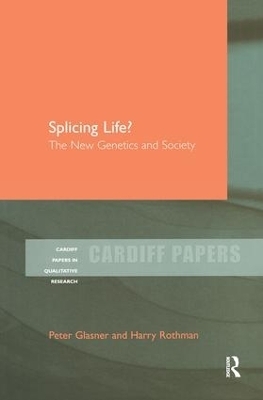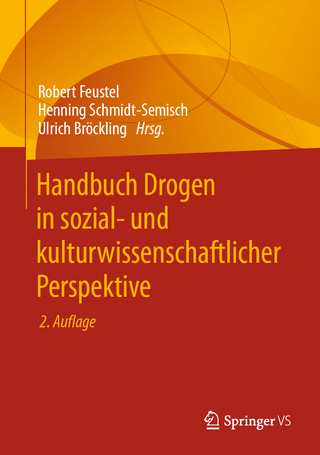
Splicing Life?
The New Genetics and Society
Seiten
2004
Routledge (Verlag)
978-0-7546-3238-2 (ISBN)
Routledge (Verlag)
978-0-7546-3238-2 (ISBN)
This unique, exploratory volume discusses the ethical, cultural and philosophical issues surrounding the search for the 'book of life', focusing in particular on the mapping of the human genome in Britain, the USA and Europe.
Geno-technology is a technology unlike any other, with significant implications for life in the 21st century. It directly affects us at a deeply personal level, it poses a threat to the boundaries which conventionally define selfhood, it generates potentially novel risks and dangers, and it threatens the very basis of accepted understandings of culture and society. This unique, exploratory volume discusses the ethical, cultural and philosophical issues surrounding the search for the 'book of life', focusing on the mapping of the human genome in Britain, the USA and Europe. It examines the impact of genetically modified crops, food and pharmacogenomics, along with the science and technology policy issues deriving from the human genome project. The authors investigate the potential risks and implications of the new genetics and conclude with a discussion of how nature may be reconfigured to underpin developments in health, commerce, state regulation and the law, both on a local and global scale.
Geno-technology is a technology unlike any other, with significant implications for life in the 21st century. It directly affects us at a deeply personal level, it poses a threat to the boundaries which conventionally define selfhood, it generates potentially novel risks and dangers, and it threatens the very basis of accepted understandings of culture and society. This unique, exploratory volume discusses the ethical, cultural and philosophical issues surrounding the search for the 'book of life', focusing on the mapping of the human genome in Britain, the USA and Europe. It examines the impact of genetically modified crops, food and pharmacogenomics, along with the science and technology policy issues deriving from the human genome project. The authors investigate the potential risks and implications of the new genetics and conclude with a discussion of how nature may be reconfigured to underpin developments in health, commerce, state regulation and the law, both on a local and global scale.
Peter Glasner is Professorial Research Fellow in the ESRC Centre for the Economic and Social Aspects of Genomics at Cardiff University, UK. Harry Rothman is a Professor at Nottingham University Business School, UK.
Contents: Introduction; The hunt for the holy grail: compiling the book of life; Doing the human genome project; Managing genetic information; 'Frankenstein' foods, or the revenge of the genetically modified potatoes; Globalization and the transformation of nature; From commodification to commercialization; Rights or rituals: involving the people; New genetics, new millennium, new society?; Bibliography; Index.
| Erscheint lt. Verlag | 16.7.2004 |
|---|---|
| Reihe/Serie | Cardiff Papers in Qualitative Research |
| Verlagsort | London |
| Sprache | englisch |
| Maße | 156 x 234 mm |
| Gewicht | 453 g |
| Themenwelt | Naturwissenschaften |
| Sozialwissenschaften ► Soziologie | |
| Technik ► Umwelttechnik / Biotechnologie | |
| ISBN-10 | 0-7546-3238-5 / 0754632385 |
| ISBN-13 | 978-0-7546-3238-2 / 9780754632382 |
| Zustand | Neuware |
| Haben Sie eine Frage zum Produkt? |
Mehr entdecken
aus dem Bereich
aus dem Bereich
Ein Grundproblem der Moderne | Die erste umfassende Studie zum …
Buch | Hardcover (2024)
Suhrkamp (Verlag)
CHF 44,75
Buch | Hardcover (2024)
Springer Fachmedien Wiesbaden GmbH (Verlag)
CHF 307,95


